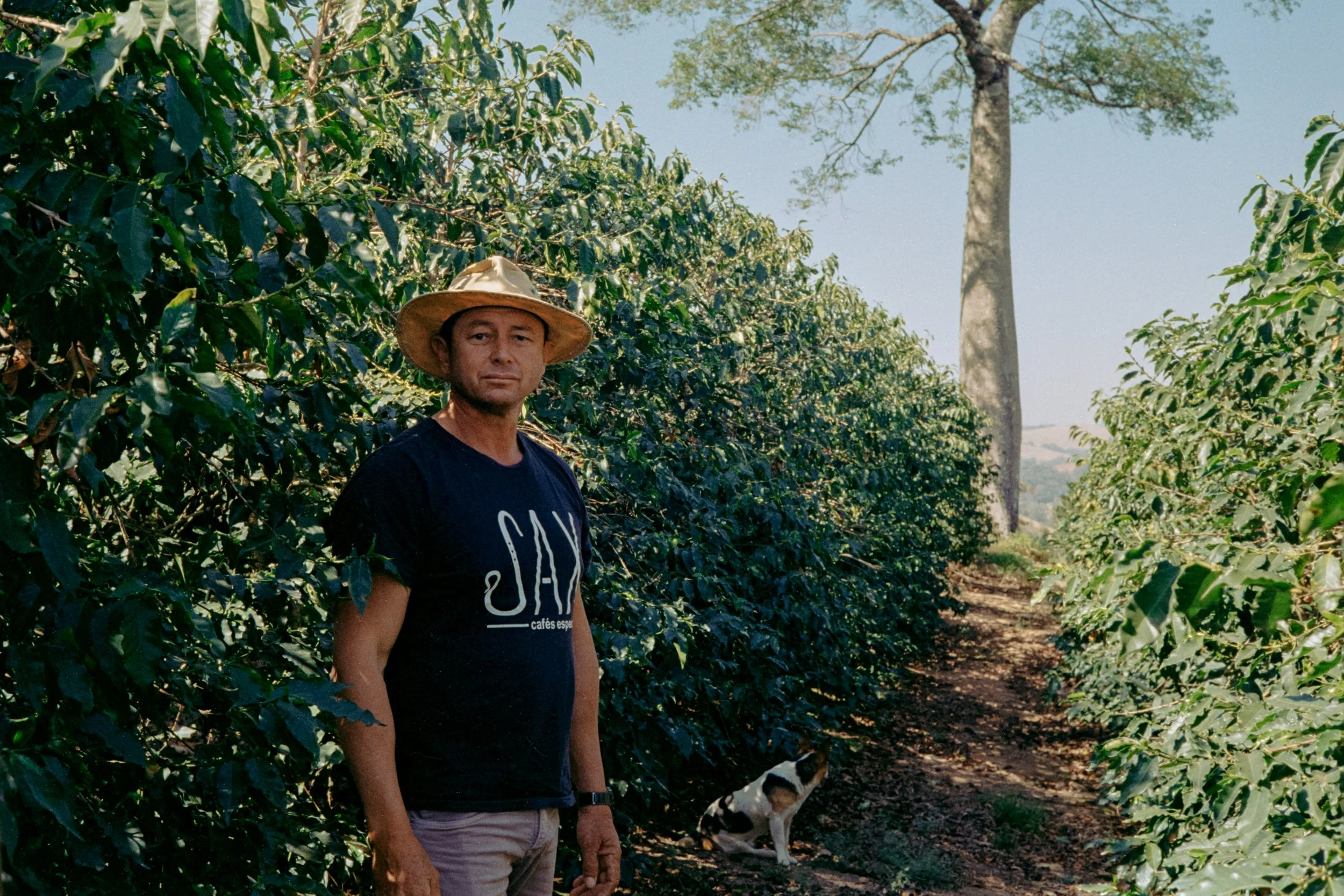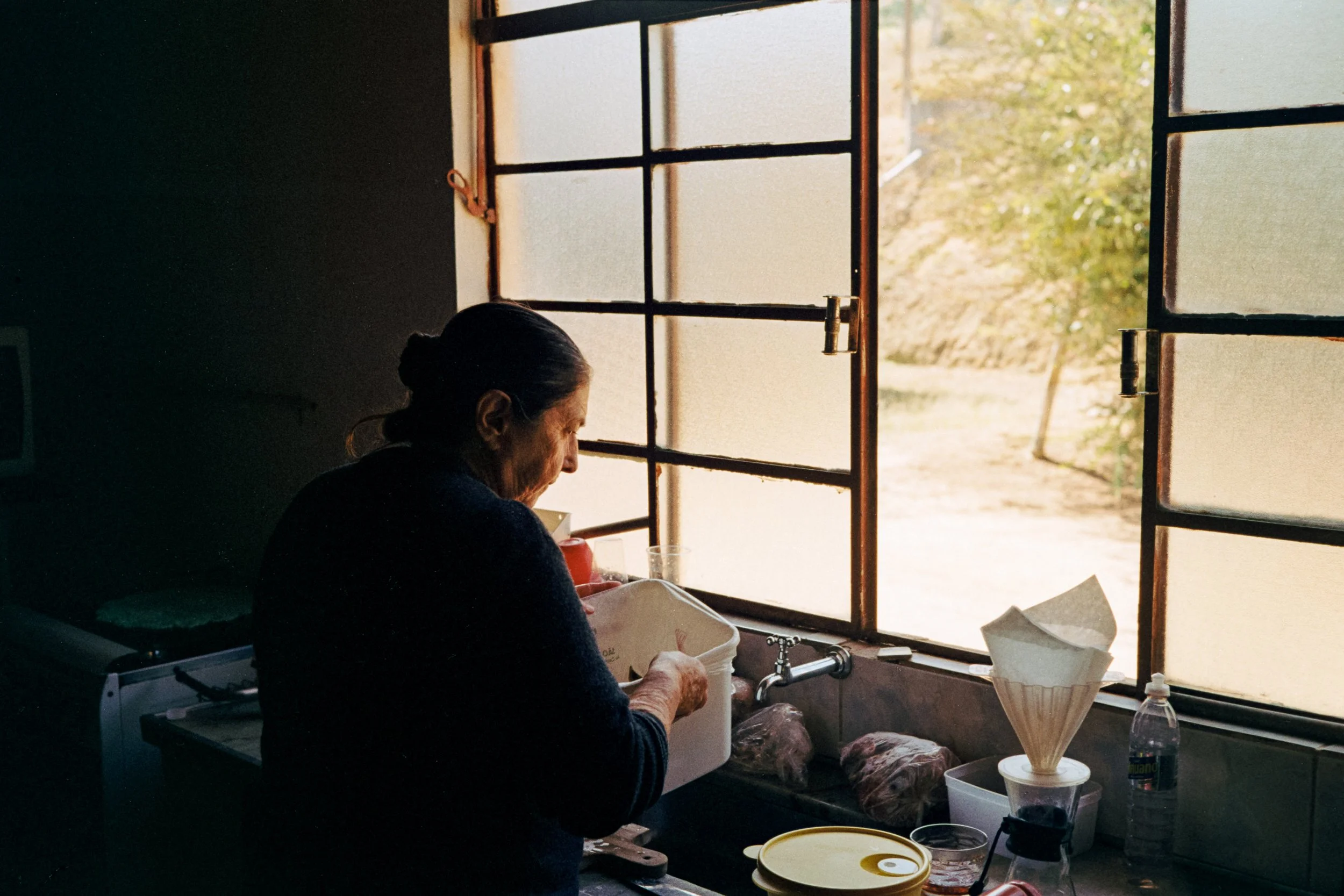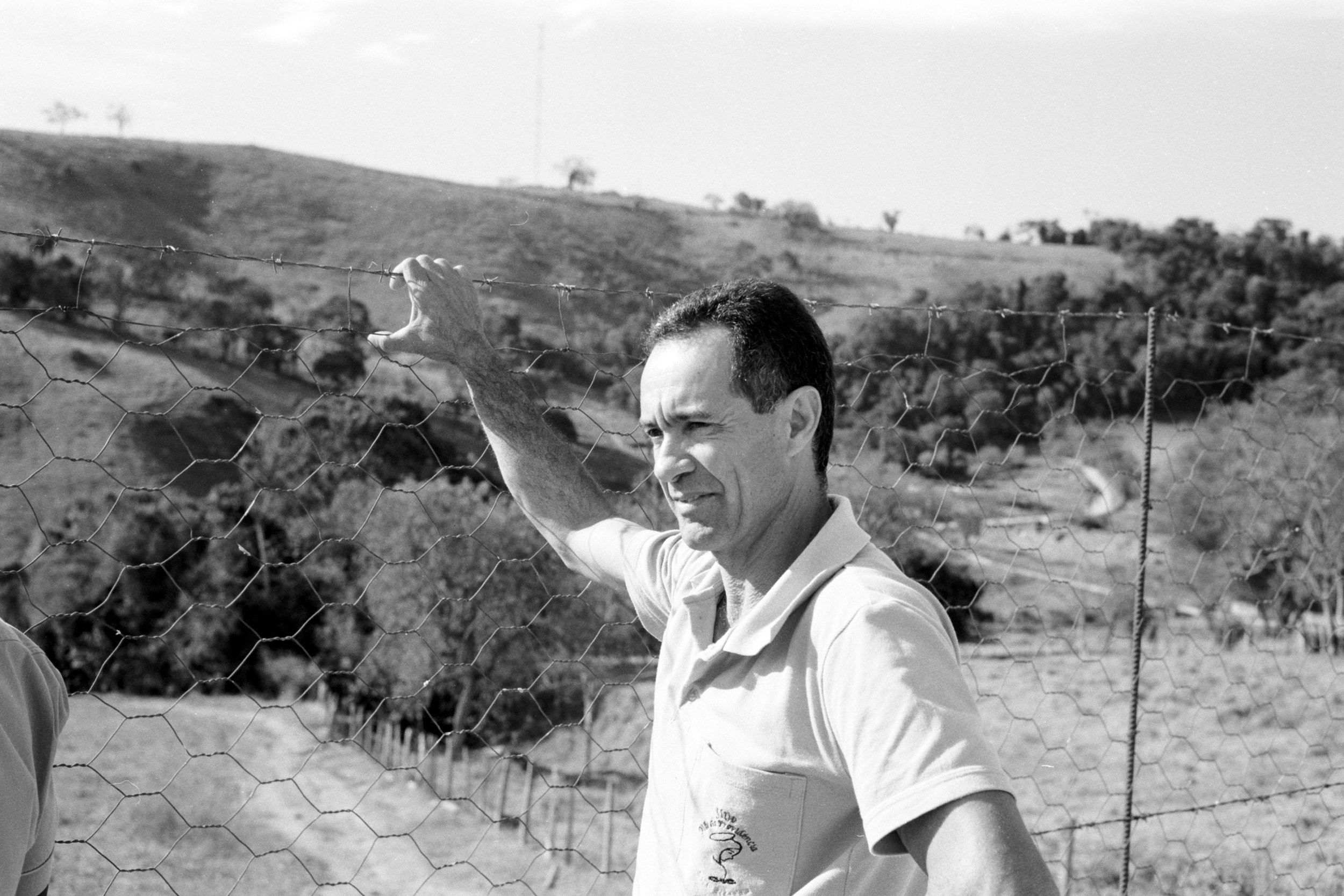As conexões que o café especial proporciona
“The connections that specialty coffee provide”
A few weeks ago, I received a message from Felipe, the agronomist at SMC Cafés - the specialty arm of Cooxupe - if I could answer some questions for an article he was putting together.
You can find the original article here and the translated article below with additional photos by me, Ricky.
By Newsroom on 10/29/2024
"Special coffee is about high quality and good relationships." Those who work with this niche must have already heard this phrase. In this sense, when it comes to a product with added value, several factors in addition to the score and its sensory characteristics are taken into consideration. Thus, nothing better than direct contact between customer and origin for the collection of information about production, sustainable practices, social projects, among others. In advance, there are many connections that the special coffee provides.
Ricky Dyson is one of the customers of SMC Specialty Coffees, a company controlled by Cooxupé. First of all, he works with his partners in the US market. The company Idle Hands imports microlots of special coffees and blends through SMC. And, in advance, it shows great satisfaction both for the quality of the grains and for the service received.
Next, check out an exclusive interview with Ricky. In the conversation, he talks about his professional history, the partnership with SMC and the connections provided by Brazilian specialty coffees. By the way, the chat came out on Folha Rural.
Trajectory
How and when did your trajectory in coffee begin? What was the starting point and how has it been nowadays?
Ricky Dyson: I began my coffee journey after moving from Melbourne to Sydney, Australia, where I started working as a barista. I quickly realized how intricate the world of coffee could be, and over the next 10 years, I continued learning about various aspects of the industry. My career path followed a typical trajectory: from barista to bar manager, then into education and training, followed by roles in green coffee approval, quality assurance, and green grading as a certified Q Grader. Eventually, I made an international move to the U.S., where I gained insight into different coffee markets. In late 2021, I co-founded Idle Hands Roasting Co with friends, and more recently, I became a head judge for the Cup of Excellence program.
How did you get to know SMC? What are the circumstances that created this partnership?
Ricky Dyson: My first introduction to SMC was at the 2018 Cup of Excellence program in Guaxupé, where SMC was the in-country partner and sponsor for that year. Watching Maria (SMC's commercial manager) and Priscilla (SMC communication analyst) interact with the cooperative members we visited and hearing them speak about Cooxupé and SMC left a strong impression on me. Their hospitality, along with that of the SMC team and the coop members, really resonated with me. At the time, I was working for another company, and when we started Idle Hands, I reached out to reconnect with them and one of the producers we met in 2018. Since then, we’ve made repeat purchases each and every year.
Connections
You usually visit the SMC and the producing families. How was your experience during this year's visits? What is your view of the special coffees presented, produced by cooperatives, and Brazilian production in general?
Ricky Dyson: Brazil is one of the most fascinating coffee origins to visit. Its advanced technology, particularly in post-harvest processing and sorting, combined with its geography, forest management practices, and scale of production, sets it apart. The sustainability measures implemented on farms are something worth celebrating. It appears more common than not and specialty producers in Brazil are paving the way in a lot of areas.
The coffees we've sourced from SMC and its partners are always exceptional, especially those with higher perceived qualities—florals, white and yellow stone fruits, or tropical fruit notes—which are distinctive and unique. In 2023, I had the privilege of cupping the coffees in the Especialíssimo Program, and they were some of my favorite coffees of the year. Even the more “typical” coffee profiles from Brazil consistently resonate with the average North American consumer. The diversity of coffee profiles in Brazil reflects the diversity of the country itself!
Quality and good practices
From an importer's point of view, both in terms of quality and information that goes beyond the cup, what do you and your customers usually look for in a coffee?
Ricky Dyson: We purchase a range of coffee profiles to meet our customers' preferences; some like fruit forward “high end” coffees and other’s enjoy classic, sweet and chocolatey. When selecting coffees, whether from Brazil or other origins, we've made a conscious decision to move beyond the singul pursuit of quality above all else. While we’ve been fortunate to connect with exceptional producers and receive beautiful coffees, we understand the challenges growers can face. This is why we've committed to making ongoing purchases from the same farms every year, with the goal of long-term partnerships.
Some form of regenerative practices have been important to us, though not a rule or requirement. From what we’ve learned, this approach seems to represent the best path forward for sustainability—both economically and environmentally. In the end, both us and our customers want the producers we buy from to succeed!
Sustainability
What are your expectations regarding the future of the specialty coffee market?
Ricky Dyson: I’m optimistic about the future of better and more stable coffee prices for growers, driven by a more connected world where consumers, through social media and other platforms, can continue to see the realities of coffee production. I believe producers will succeed, and that more roasters and consumers will be willing to support their efforts.
I think that sustainability measures, environmental, community and social, economical impacts will be more and more of an important part of the industries portfolio; for cafes, roasters, importers and exporters and producers that have the means.
With labor challenges becoming more common in many countries, I think the specialty sector will increasingly recognize that mechanically assisted harvesting and post harvest techniques for better sorting is the way forward for many countries and continue to learn from Brazil as it paves the way forward in many areas.
Finally, could you leave a special message to our cooperative members?
Ricky Dyson: Cooxupé and SMC are among the most incredible coffee organizations I’ve had the privilege to work with. Their commitment to producers, the dedication of those producers to the cooperative, and their shared focus on sustainability, equity, and inclusion—which comes in many forms—are inspiring.
It’s always an honor to visit and learn from everyone at the coop. Seeing and celebrating their achievements in cup quality, environmental stewardship, and the constant drive for improvement creates a sense of community that extends far beyond the coop. And I think that adds to the success of coffee both in Brazil and internationally. Thank you for all you do!






